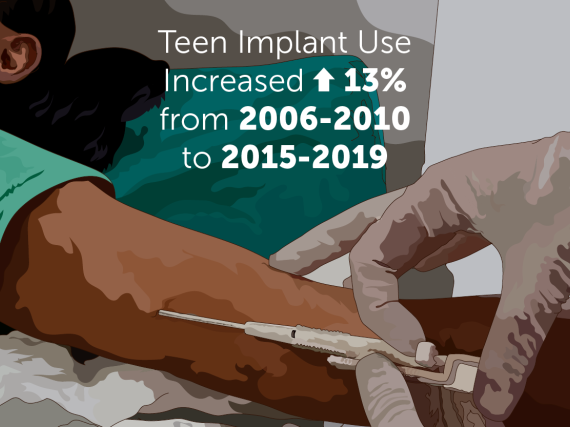Efforts to Increase Contraceptive Access for Veterans
This Veterans Day, would it surprise you to learn that women veterans now make up the fastest growing group of veterans enrolling in health care through the Veteran’s Administration? Women are serving in the military in increasing numbers, and as a result, a growing number of women depend on the Veteran’s Health Administration (VHA) for their health care once they have completed their military service.
However, unlike civilians insured with ACA-compliant plans, most veterans who access contraception through VHA must pay a co-pay for their contraception. At the same time, female veterans are more likely to live in poverty than male veterans. Even a small co-pay could be a barrier to accessing contraception for veterans struggling to make ends meet. Fortunately, there’s some promising news to report. In September, the House passed the Equal Access to Contraception for Veterans Act, introduced by Rep. Julia Brownley (D-CA) which would eliminate co-pays charged to veterans for contraception. While the bill has yet to pass the Senate, it’s an important first step in eliminating cost barriers to contraception for veterans.
Another barrier to contraception is that the VHA only provides three-month supplies of oral contraceptives at a time. Research shows this leads to inconsistent use— 43% of veterans who receive a three-month supply of oral contraceptives experience a gap of at least seven days or more between contraceptive refills over the course of a year. To improve access to contraception, 21 states (including DC) have enacted policies requiring insurers to increase the number of months for which they cover prescription contraceptives at one time—usually to a 12-month supply. In 2019 Rep. Lauren Underwood (D-IL) introduced the Access to Contraception Expansion for Veterans (ACE Veterans) which would require VHA to fill a year’s worth of hormonal contraceptive pills, patches, or rings at one time. While the bill has not yet passed, Power to Decide will continue to push for this policy change and for better coverage and access to contraception for all servicemembers, their families, and veterans.
To learn more about the progress that’s been made and the work we must do to improve coverage and access to contraception for all servicemembers, their families, and veterans, check out the policy brief Serving Those Who Serve: Access to contraception for servicemembers, veterans, and their dependents written by Power to Decide together with our smart colleagues from the Center for Reproductive Rights and the Service Women’s Action Network.
Happy Veterans Day.


